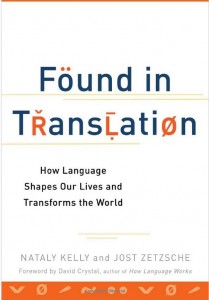Check out this great set by Maryland-based Malian griot Cheick Hamala Diabaté, who stopped by NPR’s Tiny Desk last week.
Monthly Archives: July 2013
Site web du Projet dokotoro maintenant disponible en français
Nous sommes ravis d’annoncer que notre site web est maintenant disponible en langue française, grâce à Zach Matheson. Nous avons traduits les pages les plus essentielles, mais noter que notre blog est écrit en anglais, et nous n’envisageons pas de traduire chaque article. Mais, vous pouvez vous en profitez de la traduction automatique en choisissant votre langue dans le menu déroulant à droite. Ce n’est pas parfait, mais ça marche quand même !
Vous êtes invités à explorer le site, et découvrir le Projet dokotoro. S’il vous plaît envisager de faire un don. Nous comptons sur des donateurs comme vous, tous les fonds recueillis sont destinés à payer notre équipe de traducteurs et rédacteurs professionnels au Mali.
Enfin, nous vous prions de nous contacter avec vos idées, suggestions, ou questions !
A bientôt!
Dokotoro Project website: maintenant disponible en français
We’re delighted to officially launch the French-language version of our website today. To visit, simply visit dokotoro.org/fr, or click the little « tricolore » flag at right.
Note that we’ve translated the main webpages only, and we’re not planning to translate the blog posts. But you can read machine-translated versions in dozens of languages by using a site like Google Translate.
Please share this with your French-speaking friends and colleagues, and urge them to consider making a donation or get involved. We rely on our donors, and every dollar we raise goes to pay our team of professional translators and editors in Mali.
Merci et à bientôt !
Found in Translation excerpt
 I recently enjoyed reading the book Found in Translation, about the importance of translation and interpretation in the modern world, including health care. In the first chapter, the authors describe an infamous case of the $71-million word. While this story is set in the United States, it’s easy to think of equivalent situations in Africa or anywhere in the world.
I recently enjoyed reading the book Found in Translation, about the importance of translation and interpretation in the modern world, including health care. In the first chapter, the authors describe an infamous case of the $71-million word. While this story is set in the United States, it’s easy to think of equivalent situations in Africa or anywhere in the world.
In Florida in 1980, 17-year old Willie Ramirez came to the emergency room with a severe headache. Describing his symptoms to the hospital staff, his family described his condition as “intoxicado.” The staff incorrectly thought he was intoxicated, while his family meant that he was nauseous or dizzy. The result? An incorrect course of treatment, which made Ramirez a quadriplegic. The authors go on to explain the importance of translation in hospitals.
Costs to the entire health care system are higher when interpreters are not used. When language barriers are present, medical errors are more common. There are countless reported incidents of doctors ordering unnecessary—and expensive—diagnostic tests instead of simply paying for interpreting services. When patients cannot understand their instructions, they can easily overdose by accident or take medications incorrectly. It’s a risky and high-cost business to forego language services.
Patients may say they understand some English, leading the doctor to believe it’s fine to write a prescription in a language the patient may not speak fluently. However, a Spanish speaker who reads the words “take once per day,” could easily think they are supposed to take the pill eleven times per day. After all, once means “eleven” in Spanish—like intoxicado, it’s just one of many false friends that cause horrific consequences.
